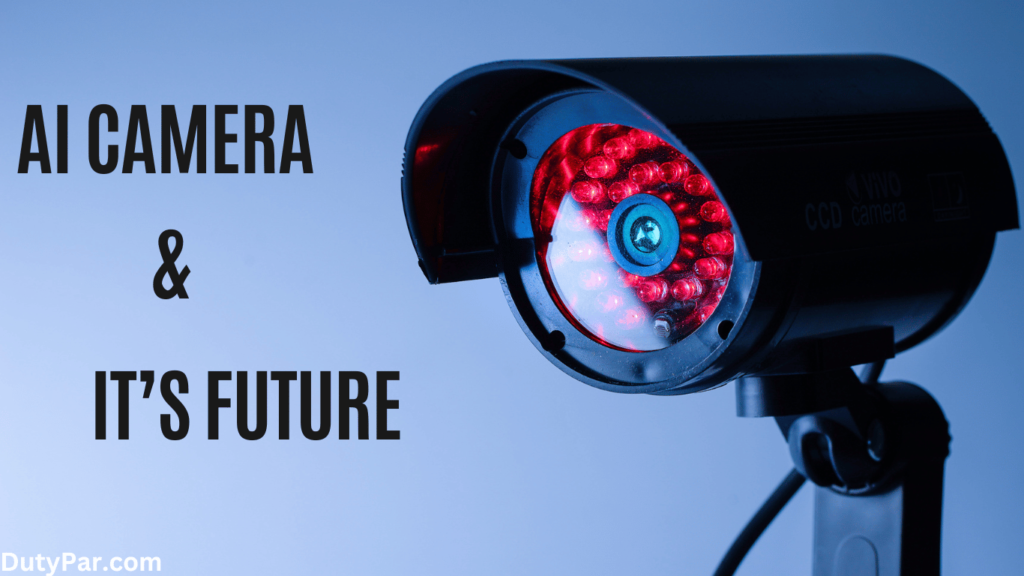
Table of contents
Introduction
AI is changing many fields, and cameras are no different. Smart cameras with clever software are causing a revolution in how we take and understand pictures. As AI grows, cameras are getting smarter more powerful, and more important for both personal use and work.
What is AI Camera?
Traditional cameras are entirely dependent on lenses, sensors, and mechanical parts to take a picture or record a video. These aspects are still relevant but not as developed in AI cameras, which feature an extra layer of computer intelligence in the interpretation and optimization of images in real time. An AI camera can recognize objects, people, and even emotions, making it a very transformative tool in sectors like photography, retail, security, healthcare, and transportation.
Applications of AI Cameras Today
AI cameras are impacting already in multiple industries in remarkable ways.
Security and Surveillance
- Facial recognition: Real time identification of people with access control and security.
- Object detection: Vehicles or even suspicious packages that may bring security breaches are identified and tracked.
- Anomaly detection: unusual activities and behaviour that may lead to the possibility of a threat being identified.
- License plate recognition: Automatic identification of a vehicle’s license plate that is used in monitoring traffic, among other law enforcement.
Retail
- Customer analytics: Behaviour of customers, such as foot traffic patterns and dwell time, are analysed to develop an ideal store layout and marketing strategy.
- Inventory management: Monitoring of inventory levels and identifying stockouts to improve supply chain efficiency.
- Loss prevention: Theft and shoplifting detection can be done through advanced surveillance techniques.
Healthcare
- Medical image analysis: Ai Camera can be used for analysing medical images, such as X-rays and MRIs, to detect diseases and abnormalities.
- Remote patient monitoring: Ai camera is so advance to monitor patients’ vital signs and activities to provide on-time medical intervention.
- Surgical assistance: Ai Camera can lookup while assisting surgeons during procedures by providing real-time data and guidance.
Smart Cities
- Traffic management: This can Optimize the traffic flow and reduce congestion through real-time traffic monitoring and analysis system.
- Public safety: AI Camera Monitors public spaces for suspicious activity and responds to emergencies.
- Environmental monitoring: Tracking air quality, noise levels, and other environmental factors are one of the most important actions of AI Camera.
Manufacturing
- Quality control: Inspecting products for defects and ensuring adherence to quality standards.
- Predictive maintenance: Monitoring equipment health and predicting potential failures to minimize downtime.
- Workplace safety: Identifying safety hazards and potential accidents in real-time.
As AI technology continues to advance, we can expect even more innovative applications of AI cameras in the future.

The Future of the AI Camera: What’s Next?
The future of the AI camera industry is incredibly bright, with several key trends expected to drive growth and innovation. We believe that AI will disrupt many industries and make an impact in the increase in productivity.
Specific Industries:
- Manufacturing: AI-powered robots can replace repetitive tasks, thus enhancing efficiency and saving labour costs.
- Healthcare: AI can analyse medical images to detect diseases earlier and create customized treatment plans.
- Finance: AI can automate fraud detection, risk assessment, and customer service.
- Transportation: Self-driving cars and trucks powered by AI can revolutionize transportation, reduce accidents, and decrease traffic congestion.
- Education: AI-powered tutoring systems can create personalized learning experiences for students.
Ways AI Increases Productivity:
- Automation: AI can automate repetitive tasks, freeing human workers to focus on more complex and creative jobs
- Data Analysis: AI can analyze huge volumes of data to identify trends and patterns that help one make better decisions.
- Personalization: Artificial intelligence will personalize products and services for the customers and therefore raise customer satisfaction and loyalty.
- Innovation: AI can give new ideas and solutions to researchers and developers.
Perspectives on the Future of AI Cameras
AI cameras offer many potential opportunities, but opinions vary on their future development and their long-term impact on the world. Here are some perspectives by third parties:
Positive Perspectives:
- Improved Security: AI cameras are among the most advanced technological gadgets for the improvement of security systems. This is so because it can realize an anomaly, faces, or follow objects in real time and makes surveillance more effective and efficient.
- Improved Efficiency: AI cameras can automate several jobs, such as traffic control, inventory checking, and quality control; hence, they provide an increase in productivity along with some cost savings.
- Advanced Healthcare: Cameras with AI in health care can even analyse medical images to detect the disease at a very early stage and even monitor patients remotely.
- Smart Cities: AI Cameras will help in developing intelligent cities, for example, enhancing traffic flow, monitoring, and safety for the public and so on.
Concerns and Challenges:
- Privacy Matters: There has been far too much focus on surveillance and privacy violations regarding the deployment of AI cameras. Individuals fear people are tracking the movements they make or monitoring their way of life.
- Ethical Concern: There are some ethics issues regarding facial recognition and other such AI-based technologies like these are error-prone based on bias and may misuse.
- Data Security: The amount of data produced by an AI camera also demands the security and safety of such cameras against cyber-attacks.
- Technical Limitations: While AI cameras have developed significantly, they still have some technical restrictions in terms of precision, reliability, and capacity.
Conclusion
In a few decades, the evolution of AI technology may envision much more advanced and innovative applications of AI cameras. On the other hand, the time has come to have a more balanced discussion of the ethical implications and the privacy issues behind widespread deployment. The proper exploitation of the power of AI cameras in developing a safer, more efficient, and more sustainable future would then call for technological innovation as balanced with responsible use.